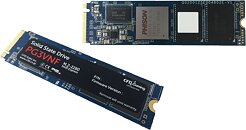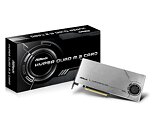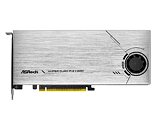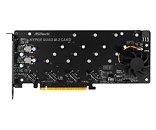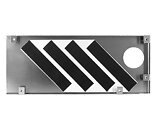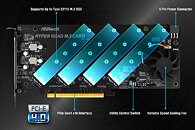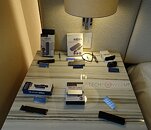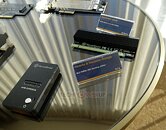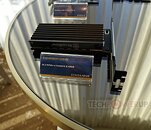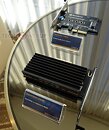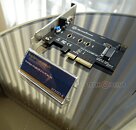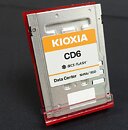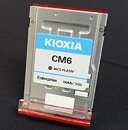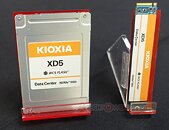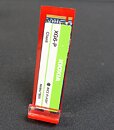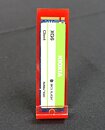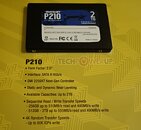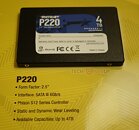
Plextor at CES 2020: M9P Plus AIC SSD and its M.2 Twin
Plextor showed off its very recently announced M9P line of premium PCI-Express NVMe SSDs at CES 2020. The M9P Plus comes in both half-height add-in card (AIC) form-factor, and a more conventional M.2-2280 form-factor. In both, it leverages PCI-Express 3.0 x4 along with the NVMe 1.3 protocol. At the heart of these drives is the Marvell 88SS1092 "Eldora Plus" controller that has 8 flash channels. This controller is paired with Kioxia 96-layer 3D TLC NAND flash (BiCS 4), and a DDR4 DRAM cache.
With capacities of 256 GB, 512 GB, and 1 TB, the M9P offers sequential reads of up to 3,400 MB/s, with up to 2,200 MB/s writes (up to 1,700 MB/s writes for the 256 GB variant). Endurance (TBW) for the three models are proportionately rated at 160 TB, 320 TB, and 640 TB. The 256 GB variant of the M.2-2280 model is priced at $51, the 512 GB variant at $81, and the 1 TB variant at $135. The AIC equivalents are priced at roughly $15 premiums over these prices, and in addition to the convenience of AIC (easier to swap in a test bench), they feature some RGB LED embellishments.
With capacities of 256 GB, 512 GB, and 1 TB, the M9P offers sequential reads of up to 3,400 MB/s, with up to 2,200 MB/s writes (up to 1,700 MB/s writes for the 256 GB variant). Endurance (TBW) for the three models are proportionately rated at 160 TB, 320 TB, and 640 TB. The 256 GB variant of the M.2-2280 model is priced at $51, the 512 GB variant at $81, and the 1 TB variant at $135. The AIC equivalents are priced at roughly $15 premiums over these prices, and in addition to the convenience of AIC (easier to swap in a test bench), they feature some RGB LED embellishments.





